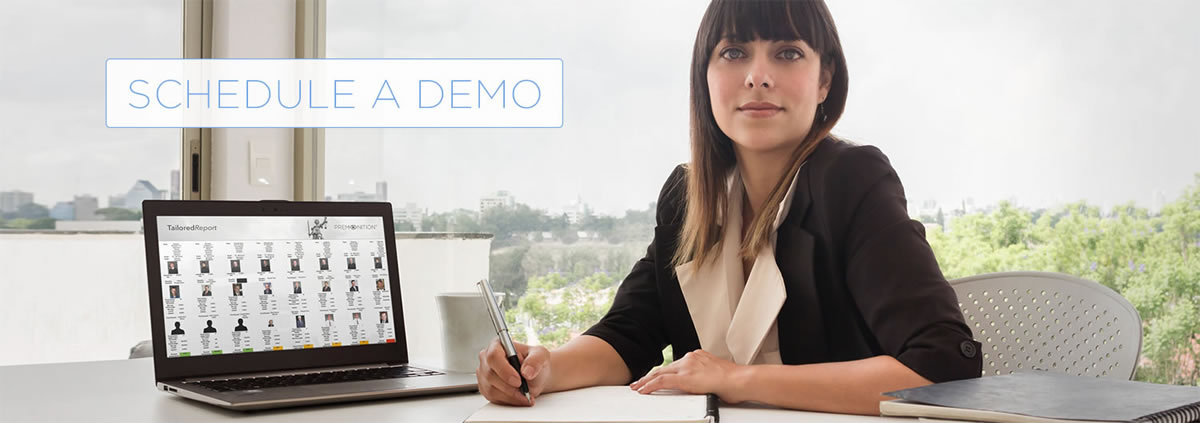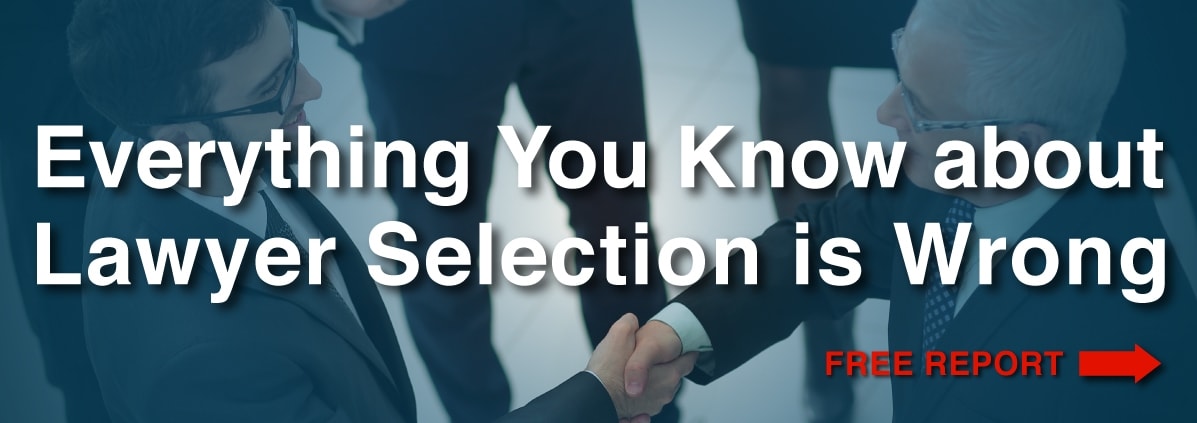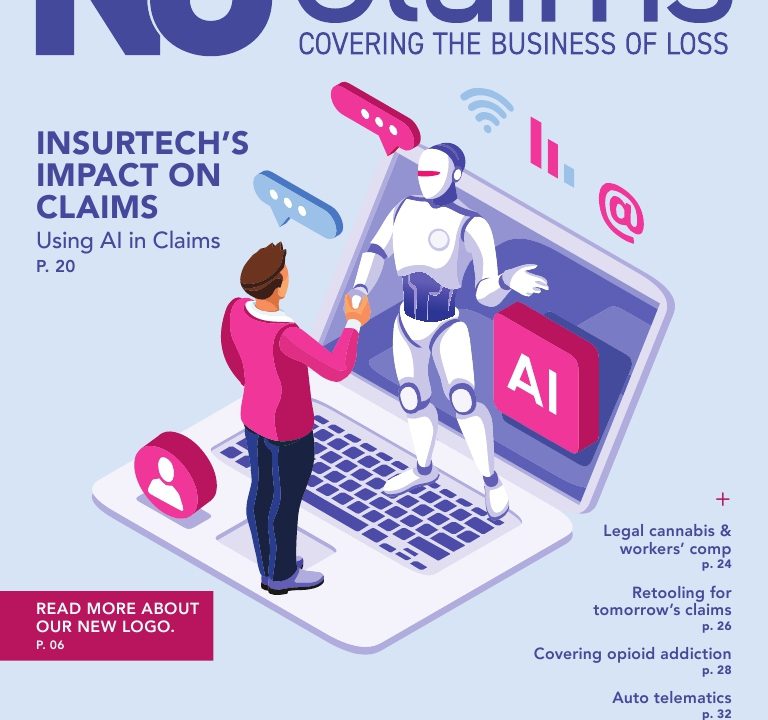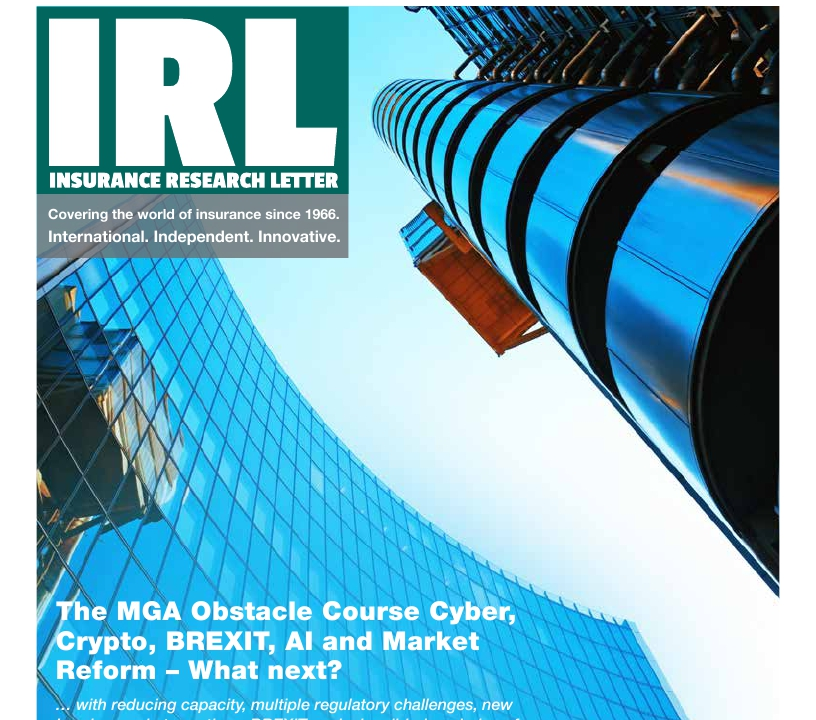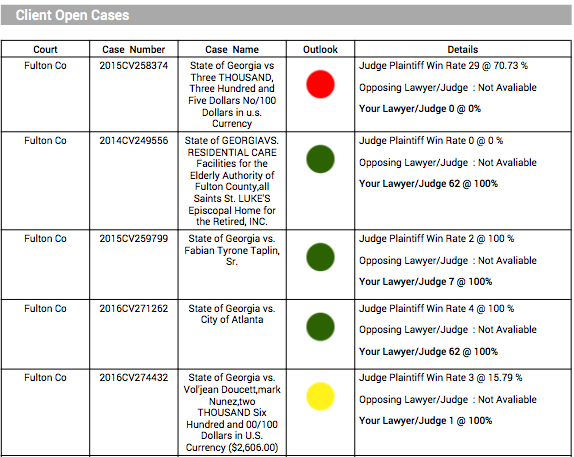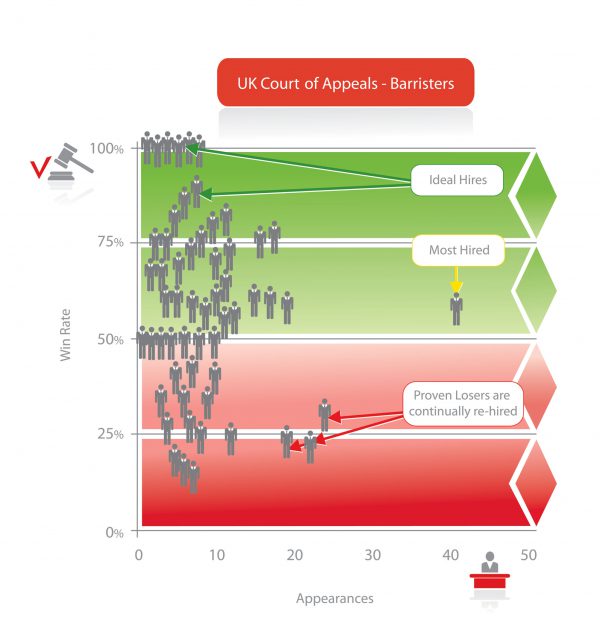
Clients take notice — if you want the best chance of finishing first in a court battle don’t brief the flash litigation hot-shots at magic or silver circle players, or even at any law firm in the UK top 100.
No, if you want the litigation practice with the best record last year of High Court wins, get on a train to Cambridge and make for the head office of regional firm Hewitsons.
You would then tell the partners to instruct either Michael Fordham or Phillippa Kaufman, the two silks that have the best “win rates” in the High Court.
This shocking development — which will clearly shake up the highest reaches of the legal profession — was revealed yesterday courtesy of a new band of US researchers that invokes state-of-the-art technology to name the best performing lawyers.
Boffins at Miami-based data analytics company Premonition claim to use artificial intelligence techniques to assess which litigators have the best win rates.
And in England the researchers reckon that regional corporate-commercial firm Hewitsons, with an 88% High Court success rate in 2014, is the best horse to back.
The firm — which also has offices in Milton Keynes and Northampton — has just merged at the beginning of this month with City of London-based Moorhead James to create a £16 million turnover practice.
Likewise, Fordham and Kaufman will be sending bouquets by the lorry-load to Miami. The former is a public law specialist at Blackstone Chambers, who took silk in 2006. While the latter is also an administrative and public law guru; based at Matrix Chambers, Kaufman took silk four years ago.
To support their claim, the researchers have produced an 80-page report that is almost totally impenetrable. Nonetheless, the gist of the Premonition analysis is its claim that the best performing lawyers are not always recognised.
The study — which was three years in the making — claims there is “no correlation whatsoever between popularity or re-hiring and win rates”.
According to the researchers:
Law firms’ selection of barristers is negatively correlated with their win rates. A barrister with twice the performance of a peer is 37.9% less likely to be hired.
We think that means that even if a barrister bags a lot of court victories, that success does not necessarily translate to repeat instructions. Although, frankly, it could almost mean anything.
The Floridians — which employed artificial intelligence to review more than 11,600 UK cases between 2012 and 2014 — said their aim is:
To increase transparency so that lawyers are hired based on their success — rather than league tables created without any foundation. By allowing companies to study trends, win rates and to potentially see which lawyers succeed with particular judges … evidence-based decision-making will be possible for the first time.


